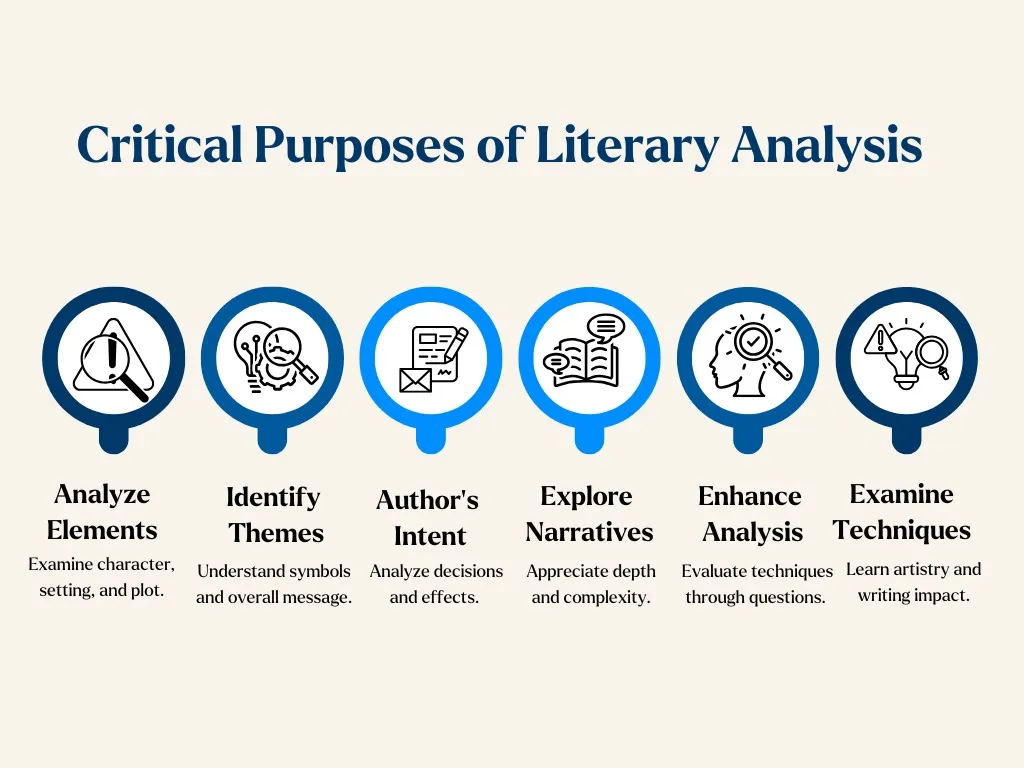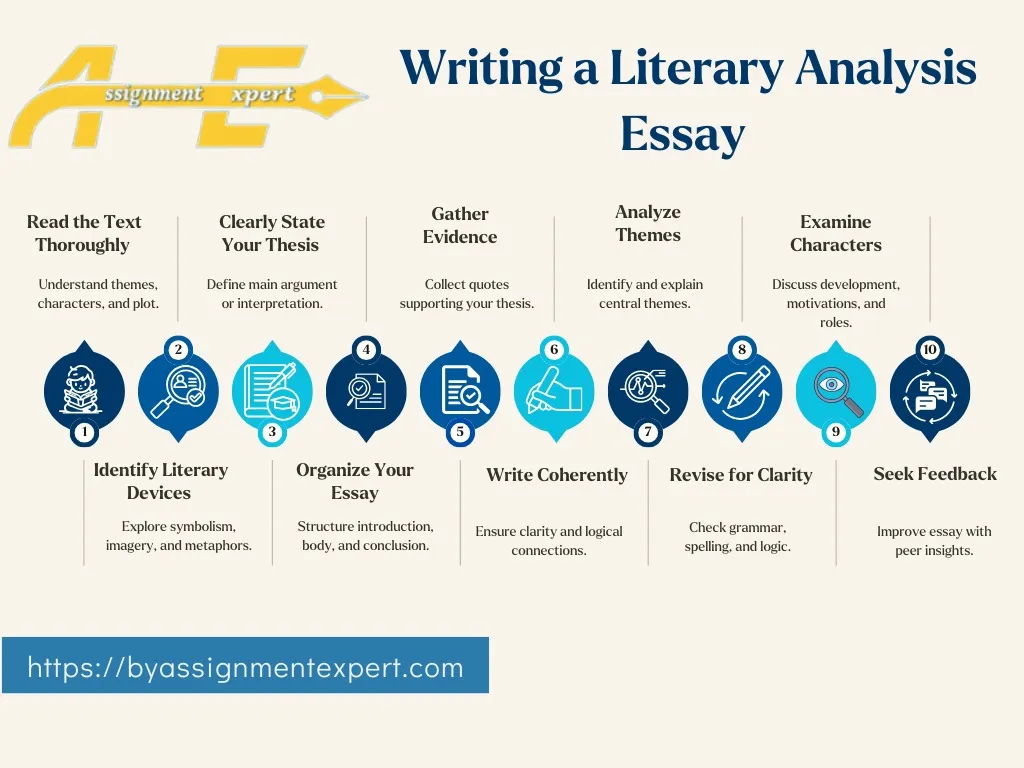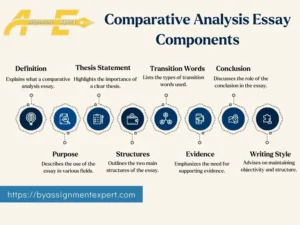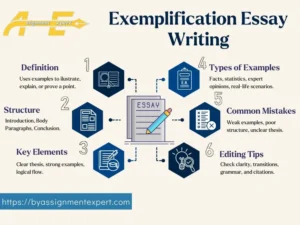Writing a good literary analysis essay goes beyond the mere summarizing of the text. It must delve into deeper meanings and understand the author’s purpose. It describes how a literary work functions and why to write its elements in a specific way. In this post, we’ll go through a step-by-step comprehensive approach to writing an insistent literary analysis essay. By following each step, you can create an insightful and well-structured essay paper.
What is Literary Analysis Essay
Before diving into the basics of writing an analysis, it’s probably a good idea to know what a literary analysis consists of. Unlike a book report or review which might give an overview of the content, a literary analysis essay focuses on characters, setting, tone, and imagery, and analyzes how they contribute to the effect of the text. Literary analysis essays determine how these elements play a role in the text’s impact, representing the author’s views and their effect on the readers.
Importance of Writing Literary Analysis Essay
The need to write an effective literary analysis essay is very important in the process of creating a deeper understanding of works of literature. One has to look at things like character development, plot structure, setting of themes, and literary devices furthering the author’s message. All these facilitate critical thinking and better interpretive ability, hence crucial in one’s academic and personal growth.
A good literary analysis essay will prove an author’s ready engagement with the text, not only in a clean flow of ideas but also in analytical abilities to give new insights and interpretations. The described skill enhances clarity, organization, and argumentation in writing. It will help the reader to do advanced studies in literature and enhance the appreciation of literature in regard to cultural and historical contexts.
Literary Analysis Essay Format
Like college application essay, literary analysis essay follows the similar format.
- Put the title of the work, your name, and all other necessary information on the title page.
- On the Introduction page, Introduce the text, provide the context, and state your thesis.
- In body paragraphs, add arguments with evidence/analysis, having clear organization.
- In conclusion, take stock and summarize the main points of the argument.
- List all sources used in your essay.
How to start a literary analysis essay?
- Establish the text by providing its title, author, genre, and central themes.
- Provide background information on the publication’s details.
- Thesis statement includes the primary argument or meaning taken from the text.
- Describe the arguments or points one intends to cover in his analysis.
Guide for writing literary analysis essay
Read the Text Thoroughly
Literary works should be read carefully to understand their theme, characters, and plot. A deep understanding of a text will help you analyze its different elements effectively. All the essential passages and recurring motifs may be noted to inform analysis and argue instances in the essay.
Clearly State Your Thesis
Clearly state your thesis, which best characterizes your central argument or interpretation of the text. This would be followed by a clear focus on what the analysis will address, giving the reader a sense of direction for the essay and ensuring focus on the points developed and the evidence used in the central claim.
Gather Evidence
Collect relevant quotations, passages, and examples from the text that prove your thesis. These shall be the pieces of evidence that support your arguments, prove your point, and illustrate what you want to say. This will also help you integrate these quotes into your essay appropriately and enhance the strength of your analysis by validating interpretation.
Themes Analysis
Identify central themes in the literary work and what they mean. Consider how these themes are developed across the text and their relevance to the narrative. The themes identified must be explained with reference to characters and the plot in order to show their relevance to the whole meaning of the work and to prove that they are meaningful.
Examine the Characters
Discuss the main characters of the text. Describe how they have been developed, their motivations, and their part in the text. Examine their actions and interactions with other characters that create the plot and explore themes within the text. Having considered the characters’ complexities, you will deeply analyze the meaning of a text.
Literary devices
Literary devices are techniques that writers use to enhance their storytelling, create deeper meanings, and engage readers. Examine literary devices, such as symbolism, imagery, and metaphor. Show how those devices enhance the meaning of the text to contribute to your interpretation. Analyzing the literary devices gives insight into the techniques that the author has used and their impact on the reader.
Organize Your Essay
Your essay should include a clear introduction, well-organized body paragraphs, and a concise conclusion.All these parts should be logically connected. Make sure your introduction contains your thesis, your body paragraphs support it with evidence, and your Conclusion summarizes your case by repurposing it.
Write Coherently
Every paragraph should support or develop a central idea and lead logically into the next. Each section must contain clear arguments or types of evidence that corroborate your thesis. Coherence keeps the reader oriented to your analysis and creates an organizational structure that keeps your argument running cohesively and logically throughout the essay.
Revise for Clarity
Revise your essay to enhance clarity, grammar, and spelling. Ensure all your arguments are well-substantiated and your analysis flows coherently and logically. Revision refines the essay and makes it more effective in communicating the meaning of the text.
Seek Feedback
Get feedback from peers, instructors, or writing centers. Their insights will let one notice any weakness you may not have observed. Use their suggestions to revise and improve your essay to ensure it meets academic standards and communicates your analysis.
Prominent Purpose of Literary Analysis
Literary analysis aims to following points:

The literary analysis would then bring readers closer to the work, the interpretation of literature in general, and a better view of the human experience, social dramas, and the subtlety involved with language and representation. The essay does nothing more than serve as a stage for the audience to appreciate the artistry and the magnitude of the literature even as they are perfected in their own analytic and critical thinking skills.
What Makes a Good Literary Analysis?
A good literary analysis is deep, clear, and original. It will not mean mere perusal of the text but a deep interpretation with subtle reasoning and well-supported arguments. Here is what makes a literary analysis outstanding:
- A clear argument is founded on a solid thesis that guides analysis.
- Begin with a hook to draw the reader in and set up the analysis
- State exactly what you are trying to say in simple, clear language.
- Support interpretations and claims through textual evidence
- Interpreting the significance of the literary element further than its face value
- Logical essay structure with clear transitions between points
- Key elements that one should identify and analyze include character.
- Show a balanced view by acceptance and counter arguments.
- Gather the arguments and a thesis statement.
These elements will help you enhance the quality of your literary analysis and guarantee its readability. This deep analysis shows not only that you really understand what the text is about but also allows your readers to delve even deeper into literature and analyze it even more deeply.
Extra Tips for Success
- Support your argument using scholarly articles, bringing in different insights.
- Avoid using colloquialisms. Instead, engage in an academic tone.
- The whole paper must deal with analysis, not merely the activities of the story.
- Place quotes naturally in your analysis with proper citation.
- Highlight why your analysis is important.
- Every paragraph should link back to the thesis statement.
- Review the text again to deepen insights and strengthen analysis.
- Check grammatical mistakes, misspellings, and readability.
- Get others’ feedback to add different perspectives and improve.
- Consult writing guides, style manuals, and academic resources.
Following these steps, you will be well on your way to creating a well-structured and insightful literary analysis essay.
Final Thoughts
The essay for literary analysis can look intimidating at its outset. Still, one can handle it relatively quickly and rewardingly with a well-planned approach and a little practice. Read this text carefully to understand all the major themes and elements. Express a clear thesis statement with organized arguments and bring forth supporting evidence.
Finally, remember to get your draft refined through revisions and seek feedback. Such steps and careful analysis will help produce a compelling argument or insightful essay that will help one get to know the work better and polish one’s writing skills. The results are sure to be great if attempted with practice and patience.
FAQs
What is a literary analysis essay?
A literary analysis essay looks at the elements, which include characters and themes, and decides what role they play in the production of the essay. While dissimilar to a book report, it goes beyond the surface and describes how the author thinks and influences the reader and the final output.
How will you go about writing the literary analysis essay?
First of all, I would say that it is correct to summarize the text in general and show all its features, such as the title of the work, the author’s name, genre, and themes. State your position and give necessary background information. State and preview what you are going to discuss since it will give the readers a clue on what to expect from your paper.
What are the components into a body paragraph in a literary analysis?
The body paragraphs should make reasonable statements that have to be backed by the text. Every paragraph you decide to develop should be devoted to a particular aspect of the themes, characters, or literary devices and demonstrate how they are linked to the thesis statement you chose.
How do I revise my literary analysis essay for clarity?
Edit by reviewing for good points, structure, and accurate style. Make sure that every developed paragraph contributes to the advancement of a thesis statement and that evidence is incorporated effectively. Pay special attention to the way your paper is written, and make sure the analysis you are providing is smooth and logically constructed.
What is the role of feedback for a literary analysis essay?
Advice freshens the thinking and points out the drawbacks which you may well gloss over. Teachers or fellow students can give suggestions based on clarity, logical arguments, and impact, that enable one to adjust the essay in order to conform to academic level quality and suitability.
















